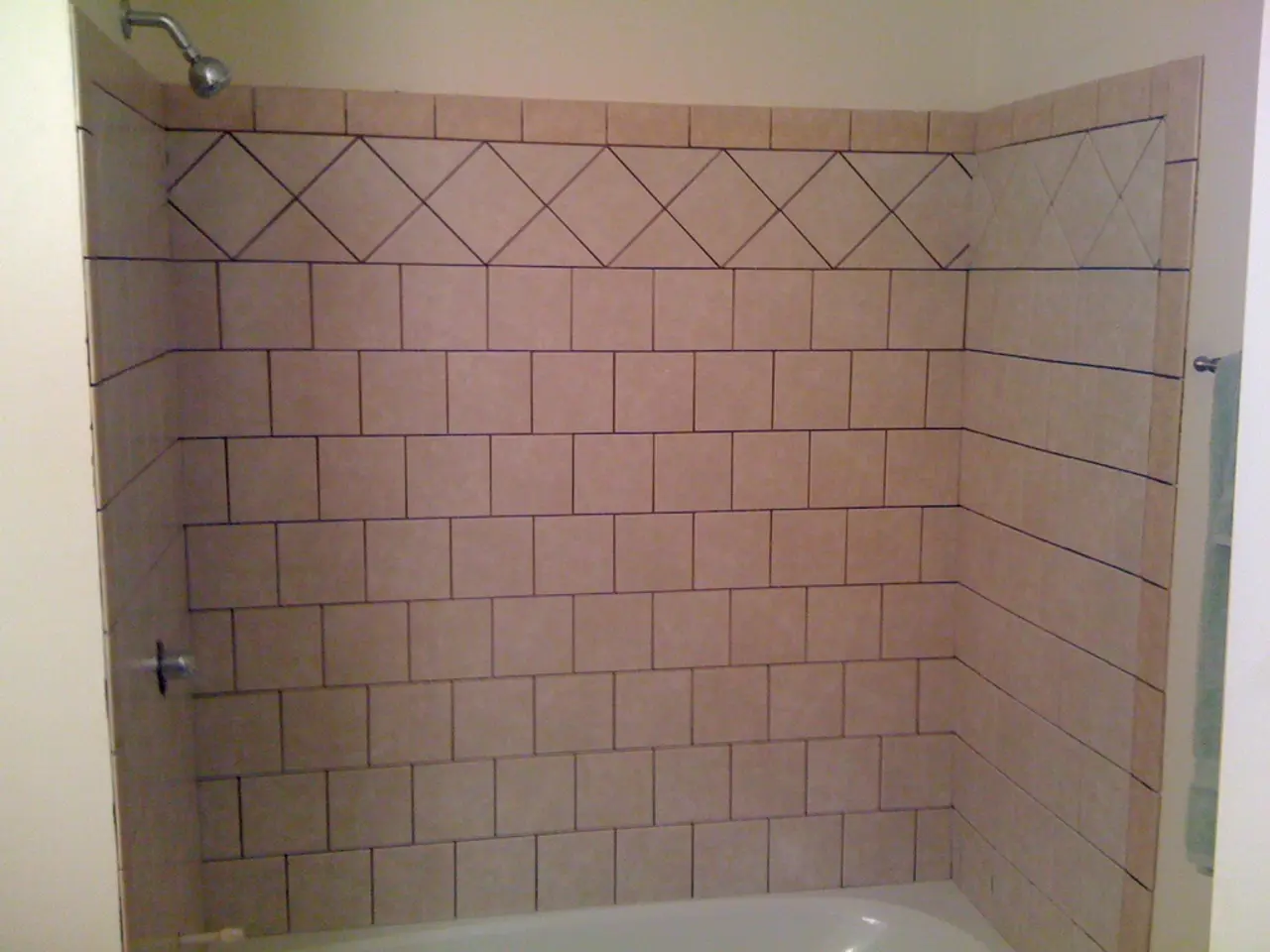comparing the efficiency of electric showers and mixer showers to assist in determining the appropriate choice for your bathroom needs
In the world of bathroom fixtures, two popular choices stand out: electric showers and mixer showers. Each has its unique advantages and is suitable for different home plumbing setups. Here's a breakdown of the main differences between these two types of showers.
Electric Showers
Electric showers heat cold water instantly using an internal heating element as it flows through the unit. They only require a cold water supply and electricity to operate, making them independent of a home's hot water system. This feature allows electric showers to provide a consistent hot water supply even if the boiler or hot water tank is off or limited.
However, electric showers can have higher electricity costs and may require upgraded electrical capacity. They are ideal for homes with low or inconsistent hot water pressure. A stylish black and chrome electric shower, for example, comes with two different shower heads and easy-to-operate soft touch buttons, making it a great choice for homes with these specific needs. Some expensive electric shower models even contain in-built pumps that can increase the flow of water.
Mixer Showers
Mixer showers, on the other hand, blend pre-heated hot water (from the boiler or tank) with cold water to reach the desired temperature. They rely on the home's existing hot and cold water supplies. Mixer showers generally provide better water pressure and steady temperature control when installed in homes with good hot water pressure.
Mixer showers offer more comfort through thermostatic controls or advanced diverter valves to manage temperature and water flow between outlets. However, installation may be more complex, and performance can fluctuate if hot water supply changes or pressure drops occur when other taps are used. Mixer showers tend to cost slightly more than electric showers, particularly those with a thermostatic function.
Choosing the Right Shower for Your Home
When deciding between electric showers and mixer showers, it's essential to consider your home's plumbing setup.
For homes with combi boilers or hot water tanks that may deliver inconsistent hot water pressure, an electric shower can be a useful solution. They act independently from the boiler system, providing a steady hot water supply.
In homes with hot water tanks that provide a steady hot water supply under sufficient pressure, mixer showers work well. They offer comfortable showers with steady temperature control.
For homes with low water pressure, electric showers can boost temperature without needing high pressure, while mixer showers might have poor performance due to low hot water pressure. In such cases, power showers or pumps may be necessary.
Homes with limited electrical capacity may struggle to support electric shower heating requirements, while mixer showers typically use less electrical power but depend on a reliable hot water supply.
In summary, electric showers are versatile and independent of the home's hot water system, suitable for low or variable water pressure environments. Mixer showers, on the other hand, depend on good hot water pressure for optimal performance and can offer more comfort and advanced features but require a reliable hot water supply and potentially more complex installation.
Remember, mixer showers are more complex to install than electric showers, so it's always best to hire a professional plumber for the job.
[1] Electric Showers Explained [2] Mixer Showers Explained [3] Choosing the Right Shower [4] Designing for the Bathroom [5] Electric Showers vs. Mixer Showers
- To achieve the best results, one must consider the unique advantages and home plumbing setups when choosing between electric showers and mixer showers.
- Electric showers heat cold water instantly using an internal heating element, needing only a cold water supply and electricity, making them independent of a home's hot water system.
- Mixer showers blend pre-heated hot water and cold water to reach the desired temperature, relying on a home's existing hot and cold water supplies.
- Electric showers, such as a stylish black and chrome model with multiple shower heads and easy-to-operate buttons, are ideal for homes with low or inconsistent hot water pressure.
- In homes with good hot water pressure, mixer showers tend to provide better water pressure and steady temperature control.
- For homes with combi boilers or hot water tanks that may deliver inconsistent hot water pressure, electric showers can be a useful solution, providing a steady hot water supply independently of the boiler system.
- Homes with hot water tanks that provide a steady hot water supply under sufficient pressure are suited for mixer showers, which offer comfortable showers with steady temperature control.
- Homes with limited electrical capacity may struggle to support electric shower heating requirements, whereas mixer showers typically use less electrical power but depend on a reliable hot water supply.
- Mixer showers, with their thermostatic controls or advanced diverter valves, can offer more comfort and advanced features, but require a professional plumber for installation due to their increased complexity compared to electric showers.




